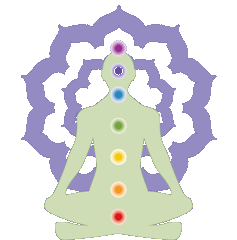"You have been taught that there is something wrong with you, and that you are imperfect, but there isn't, and you're not."
-Cheri Huber
From a very early age, when we are still tiny, helpless, and dependent on our caretakers, we heard things like this all the time: "Stop that!" "Cut it out!" "You're driving me crazy!" "Shame on you." "I'm so disappointed." "Why don't you ever think?" "What will it take to teach you a lesson?" "I've done so much for you and what thanks do I get?" "Too bad, you deserve it."
Even parents who are kind and loving say these things sometimes. Why? Partly because they're just human, but mostly because the same thing was done to them. They believe that those types of statements and negative energy are necessary parts of socialization. But they're not. They just teach us that we're fundamentally flawed, when we're not!
We are encouraged to look for flaws in ourselves, to judge those flaws & feel negatively about them - maybe even hate ourselves - and to then punish ourselves mentally, physically, &/or emotionally until we change. BUT! Judgement and punishment do NOT work to create change.
What we DO need to learn is: To love ourselves unconditionally, to appreciate ourselves fully for who we are, to have confidence in our own abilities, and to trust our own heart for guidance in life. Many of us have been told, directly or indirectly, that living this way is somehow self-centered. It is not. Living this way is the path to true love and kindness for the Self and all others.
We often feel fearful, angry, anxious, irritated, disappointed, etc. These negative emotions can often arise during yoga practice, as I've discussed before. Why does this happen? Yoga helps us practice witnessing the mind and all its movements. Throughout the day we use the mind and the intellect to steer us toward what we want to (or have to) focus on, and to suppress or steer away from things we don't want to deal with. During practice, we are witnessing the mind and the breath simply as they come, without judgement. That means that if a negative thought arises, we don't try to instantly shove it away. It has arisen because it needs to be experienced, dealt with, and then released. This release cannot be forced.
These negative emotions and self-concepts are NOT who we are. They are simply a result of what happened to us. It is sad that this happened to us, but we are stronger now, and all of it can be let go. The problem is, it's hard to let go, because it feels like letting go of a part of the self! Even though it's not, it's been there for so long that it feels all tangled up with your identity. For some people, letting go of things like shame, self-loathing, a negative outlook, etc. can feel like losing an arm! Some people are not ready to move past their own negativity. That's OK. But it is possible for each and every one of us to live in joy, happiness, compassion and contentment. If you are practicing yoga, you are already headed in that direction. Keep going!
So, what do you do when Negativity rears its head during your practice? First of all, keep breathing, maintain your focus, and remember that these thoughts or images, like everything, are only temporary. They WILL pass. You WILL feel better! Secondly, it's important to understand that negative mind chatter NEVER has any helpful information for you! It is nonsense, and should not be believed. You can think of it almost as a separate entity with its own adgenda: it is going to keep bugging you so you pay attention to it! And when you pay attention to it, you are feeding all those old negative feelings from childhood. Even though this feels awful on one level, it feels familiar and safe on a deep level, because of those childhood experiences we all had. We need to learn to not feed negative thoughts AND not to judge or turn against the Self for having them. They should simply be witnessed and allowed to pass away as with all other thoughts, like birds flying across a clear sky and into the distance. But negative emotions are especially difficult. This is where we need to separate the Witness from the chattering mind. The chattering mind is upset. But the Witness is always detatched and compassionate. We can all connect with this internal Witnessing mind and use it to deal calmly and compassionately with any situation, internal or external. If you take the most frightening thing in the world and invite it in, put your arms around it, sit still with it, and love it, what is there left to be frightened of? We are scared of our emotions because they can be painful. But living with repressed self-hate that breaks through to the surface sometimes is even more painful. At some point, now or later, you're going to have to really look and really deal with your emotions to see what's underneath, i.e., your true Self. And I am happy to be able to promise you this: it is a flawless, shining jewel.
Monday, August 11, 2008
Subscribe to:
Post Comments (Atom)





No comments:
Post a Comment